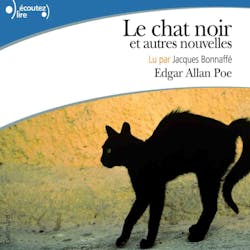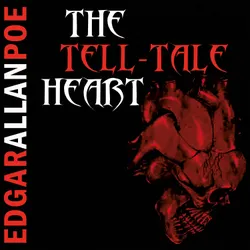The Raven is a narrative poem by American writer Edgar Allan Poe. First published in January 1845, the poem is often noted for its musicality, stylized language, and supernatural atmosphere. It tells of a talking raven's mysterious visit to a distraught lover, tracing the man's slow fall into madness. The lover, often identified as being a student, is lamenting the loss of his love, Lenore. Sitting on a bust of Pallas, the raven seems to further instigate his distress with its constant repetition of the word "Nevermore". The poem makes use of a number of folk, mythological, religious, and classical references. Poe claimed to have written the poem very logically and methodically, intending to create a poem that would appeal to both critical and popular tastes, as he explained in his 1846 follow-up essay, "The Philosophy of Composition". The poem was inspired in part by a talking raven in the novel Barnaby Rudge: A Tale of the Riots of 'Eighty by Charles Dickens. Poe borrows the complex rhythm and meter of Elizabeth Barrett's poem "Lady Geraldine's Courtship", and makes use of internal rhyme as well as alliteration throughout. "The Raven" was first attributed to Poe in print in the New York Evening Mirror on January 29, 1845. Its publication made Poe widely popular in his lifetime, although it did not bring him much financial success. The poem was soon reprinted, parodied, and illustrated. Critical opinion is divided as to the poem's literary status, but it nevertheless remains one of the most famous poems ever written.

Le Chat noir
Edgar Allan Poe
book
Le chat noir et autres nouvelles : Le chat noir, Le masque de la mort rouge et Le portrait ovale
Edgar Allan Poe
audiobook
The Tell-Tale Heart
Edgar Allan Poe
audiobookbook
The Thousand-and-Second Tale of Scheherazade
Edgar Allan Poe
book
The Pit and the Pendulum
Edgar Allan Poe
book
The System of Doctor Tarr and Professor Feather
Edgar Allan Poe
book
The Purloined Letter
Edgar Allan Poe
book
The Oblong Box
Edgar Allan Poe
book
Three Sundays in a Week
Edgar Allan Poe
book
The Unparalleled Adventure of One Hans Pfaall
Edgar Allan Poe
book
The Premature Burial
Edgar Allan Poe
book
William Wilson
Edgar Allan Poe
book
